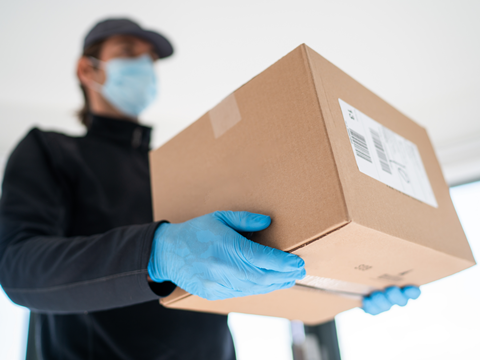
Thermo Fisher Scientific has introduced an ambient shipping solution for 125,000 of its Invitrogen antibodies, said to represent a 90% reduction in shipment mass and reduce carbon emissions.
Through functional and stability testing, Thermo Fisher states it has demonstrated that a significant portion of its Invitrogen antibody portfolio can be maintained at ambient temperature conditions during transport.
By eliminating the use of cold gel packs and introducing a new ‘100% curbside recyclable’ paper packaging for customers, the company says it expects to eliminate more than 216,000 pounds of paper and 440,000 pounds of gel ice packs per year. This new packaging is said to represent a 90% reduction in shipment mass, improves freight density and reduces carbon emissions.
Ellie Mahjubi, vice president of protein cell analysis at Thermo Fisher Scientific, said: “We are proud to launch this critical change, delivering on Thermo Fisher’s Mission to enable our customers to make the world healthier, cleaner and safer. We believe this transition will have a considerable impact on the global research community by reducing packaging waste and transport emissions without compromising the quality of our antibodies.”
“Antibodies are important to our work in genetics and genomics,” added Graham Erwin, assistant professor of molecular and human genetics at Baylor College of Medicine in Texas, USA. “This more sustainable shipping solution helps simplify our laboratory’s operations by reducing packaging waste and minimizing our environmental impact without compromising on our research goals.”
Interzero teamed up with German startup hey circle in June to utilize its reusable boxes, in an effort to reduce waste and save CO2 emissions in package shipping. The boxes are designed for 50 cycles, tested for a stacking pressure of 150 kg, and can be loaded with up to 12 and 15 kg respectively.
A few months later, Returnity revealed it had adapted its reusable shipping box solution to work with various distribution line setups in retail and e-commerce, hoping to meet the challenges of varying production lines, labelling systems and automation technologies. The company’s The Last Box is a reusable packaging solution with a collapsible nesting design for storage and returns, designed to reduce retailers’ packaging costs.
If you liked this story, you might also enjoy:
The ultimate guide to the Packaging and Packaging Waste Regulation in 2024
How are the top brands progressing on packaging sustainability?
Sustainable Innovation Report 2024: Current trends and future priorities
Everything you need to know about global plastic sustainability regulation














No comments yet